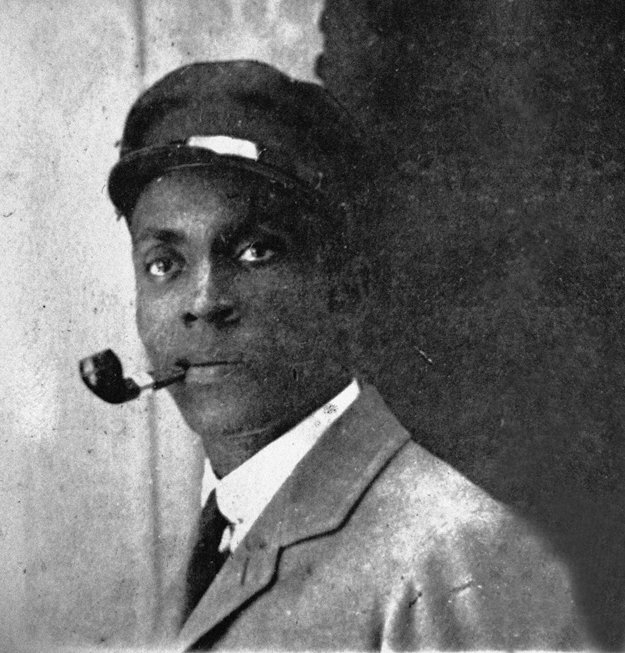Imperial Russia, one of the largest empires that thrived from 1720 to 1917, had only about a dozen permanent black residents out of a population of over a million. It has been documented that during this period, Russia “waged wars, conquered surrounding lands, and produced some of the most well-known, and highly feared, monarchs in modern history.”
Despite being a period that kept many in poverty, many Africans in the U.S., especially in the 18th and 19th century, saw a move to Russia as an opportunity for a better life, to escape the brutalities of American slavery.
Apart from the well-known black person, Abram Hannibal, who lived in the 18th century and is famous because he was the ancestor of Alexander Pushkin, Russia’s great national writer, many black people who headed to Russia ended up working as araps (potters or gatekeepers) at the Russian court.
That is why it was surprising when details emerged that an African-American had not only lived in Tsarist Russia (or imperial Russia) but had thrived to become one of the “most successful musical impresarios and businessmen” at the dawn of the 20th century.
Known as Frederick Bruce Thomas and son of former slaves, Thomas would leave Mississippi in the U.S. and settle in Moscow, where he changed his name to Fyodor Fyodorovich Tomas, became famous and owned property before eventually settling in Constantinople, Turkish Republic.

How he made it big in Tsarist Russia, one of the last places anyone would have expected to find a black American at the dawn of the 20th century is what baffles many.
Born in 1872 to former slaves in Coahoma County, Mississippi, Thomas’s parents, Hannah and Lewis, were freed slaves who owned a small property near the border with Louisiana. This was seen as extraordinary as most of the land owned at the time, particularly, in the South belonged to a handful of white families. Thomas also acquired an education, which was also rare for many black people at the time.
In 1886, a white rich planter decided to take over the property of the Thomas family and the latter fought back in court and won – another extraordinary feat for black people.
But the white planter appealed, and under threat, the Thomas family decided to leave Mississippi in 1890 and settle in Memphis. There, the unfortunate occurred – Thomas’s father was murdered under unknown circumstances and the family broke up.
Frederick decided to move to Chicago to escape the injustices towards African-Americans in the Deep South. Seeking more freedom, he left for Europe in 1894. According to accounts, he travelled in several countries, learned French and was finally hired as a valet by a wealthy family. In 1899, he went with them to Moscow, where there were just a few black people at the time before the Revolution.
Thomas would, however, flourish in business. For ten years, he worked as a waiter, a butler and a valet before becoming assistant to the owner of Yar, the city’s most prominent café-theatre and a favourite spot for the bourgeoisie of Moscow.
According to BlackPast, Thomas was so good at his job and earned enough money to the extent that in 1911, together with two Russian partners, he rented a large entertainment garden called “Aquarium” near the city centre.
Thomas and his colleagues transformed the entertainment garden, which had then collapsed, into one of the most successful venues for popular theatrical entertainment in Moscow until the Revolution. In 1912, Thomas rented a variety theatre in the centre that he named “Maxim” which soon became a favourite of many in Moscow.
“Occasional American tourists who passed through Russia on their European tours would report their astonishment back home at having encountered a ‘prosperous’ and ‘diamond bedecked’ black American in such an unexpected setting,” writes BlackPast.
Thomas married three times, had five children and also took Russian citizenship – probably the first black American ever to do so. Around 1914, he had made so much money that he bought a villa in Odessa and other properties in Moscow.

But when the Bolshevik Revolution broke out in 1917, Thomas, being a black American and wealthy, had to flee. He first went to Odessa before making it to Constantinople in 1919 with his family. There, he sought help from the American embassy to, perhaps, be repatriated to the U.S. but sources say that officials at the embassy refused to help him largely because of his skin colour.
So like most Russian refugees, Thomas decided to do start doing business in Constantinople. Within three months, he had opened an entertainment garden on the city’s outskirts which soon became the favourite of many nightclub lovers in 1920s Turkey, including English and French soldiers.
Many of them trooped into his entertainment garden to listen to jazz, which he had brought to the city. These factors made him rich once again after nearly going into bankruptcy.
Unfortunately, businesses began to dwindle after foreigners and a large part of the wealthy class had begun leaving the city. Thomas fell into debt. Unable to pay his creditors, he was jailed and his nightclub was seized. Not able to recover from these hard times, Thomas fell ill and later passed away on July 8, 1928, at Pasteur Hospital in Taksim.
Today, he is remembered as the ‘Black Russian’ or ‘Jazz Sultan’ who made a fortune in Tsarist Russia. He is an example of the few blacks who fled the U.S. to escape racism but would rise to the top of the economic ladder in Europe and elsewhere in spite of the revolutions, wars, and other obstacles they had to deal with.










